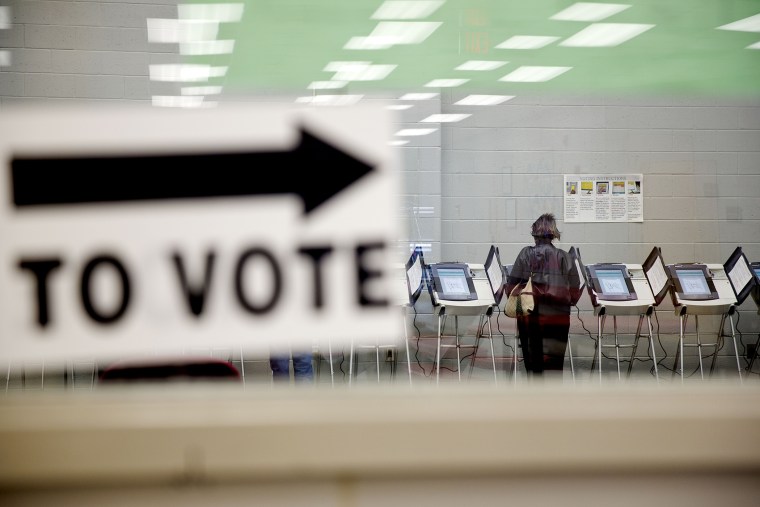At its winter meeting Saturday in Florida, the Democratic National Committee unanimously passed a resolution that supports "amending the United States Constitution to explicitly guarantee an individual's right to vote." The DNC also said it would urge state parties to push for statewide referenda backing the idea, and pledged to create a "Right to Vote Task Force" to offer ideas on how to protect voting rights. The resolution was submitted by Rep. Debbie Wasserman Schultz, the chair of the DNC, as well as Donna Brazile, a vice chair and prominent figure in the party.
When the constitution was enacted it did not include a right to vote for the simple reason that the Founders didn't think most people should vote. Voting laws, at the time, mostly favored white, male property-holders, and the rules varied sharply from state to state. But over the first half of the nineteenth century, the idea of popular democracy took root across the land. Property qualifications were universally abolished, and the franchise became the key marker of white male political equality. Subsequent activists sought to further expand the franchise, by barring discrimination on the basis of race (the 15th Amendment) and gender (the 19th) -- establishing the norm that all citizens should have the right to vote. But this norm is just a norm. There is no actual constitutional provision stating that all citizens have the right to vote, only that voting rights cannot be dispensed on the basis of race or gender discrimination. A law requiring you to cut your hair short before voting, or dye it blue, or say "pretty please let me vote," all might pass muster. And so might a voter ID requirement. The legality of these kinds of laws hinge on whether they violate the Constitution's protections against race and gender discrimination, not on whether they prevent citizens from voting. As Harvard Law professor Lani Guinier has written, this "leaves one of the fundamental elements of democratic citizenship tethered to the whims of local officials."
We need a modernized voter-registration system, weekend elections, and a host of other practices to make voting easier. But we also need to focus on an even more audacious and broader effort -- a constitutional amendment protecting the right to vote.... [T]he lack of an explicit right opens the door to the courts' ratifying the sweeping kinds of voter-restrictions and voter-suppression tactics that are becoming depressingly common. An explicit constitutional right to vote would give traction to individual Americans who are facing these tactics, and to legal cases challenging restrictive laws. The courts have up to now said that the concern about voter fraud -- largely manufactured and exaggerated – provides an opening for severe restrictions on voting by many groups of Americans. That balance would have to shift in the face of an explicit right to vote. Finally, a major national debate on this issue would alert and educate voters to the twin realities: There is no right to vote in the Constitution, and many political actors are trying to take away what should be that right from many millions of Americans.
